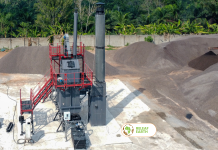As Nigeria’s inflationary pressures intensified in the month of March, all five parameters of the Sales Managers Index were dragged to a 12-month low.
According to a new set of data released on Monday by the London-based World Economics Nigeria’s Business Confidence Index down for the seventh consecutive month, reaching the lowest level in a year.
Businesses in the survey commented on poor consumer demand, rising unemployment, high inflation, lower oil prices and difficult exchange rate conditions.
The Market Growth Index measured by the report also showed fifth consecutive decline and the lowest since March 2015.
The Product Sales Index falls first time in 12 months as managers point to general rise in prices charged for products and services.
At the employment level in the first quarter of 2016, the staffing index fell below the 50.0 no-change mark for the first time, as companies comment on staff rationing as part of cost-cutting measures at lower level of employment.
Meanwhile, the United States said on Monday it would press Nigeria in talks this week to adopt a more flexible foreign exchange rate to boost growth and investment in Africa’s largest economy.
The US Assistant Secretary of State for Africa, Linda Thomas-Greenfield, told an audience at the U.S. Institute of Peace that Nigeria should ensure that the value of the naira currency versus the U.S. dollar was “more realistic.”
“While most people complain about the possibility of there being a devaluation, people are already operating on a devalued currency, and the only people who are not, are people who are doing it officially,” Reuters quoted Thomas-Greenfield to have said.
“Our recommendation is, and we will have discussions about it that they should look at the exchange rate and try to make the exchange rate more realistic to what the value of the naira is to the dollar,” she added.













RT @BizWatchNigeria: Inflation Drags Nigeria’s Business Confidence Index Down to 12-month Low – https://t.co/HGkZrX8CN4 https://t.co/MRPAdY…
RT @BizWatchNigeria: NEW POST: #Inflation Drags #NigeriasBusinessConfidenceIndex Down to 12-month Low https://t.co/dukygLRARA https://t.co…